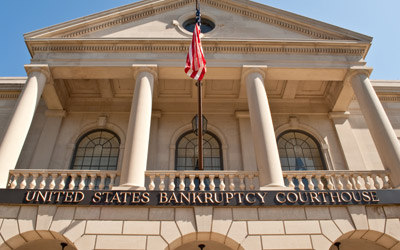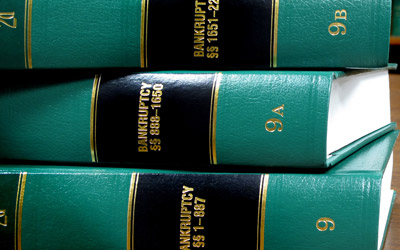Bankruptcy Articles
Debts Bankruptcy Can’t Wipe Out
Whether you file for chapter 7 or 13, there are certain debts that can’t be discharged. Therefore, there are some types of debts that you take with you to the grave, and they can’t be wiped out in a bankruptcy. Therefore, you will still be liable for these debts even after your bankruptcy is closed. A key issue to assess whether a debt can be wiped out is what type of chapter of bankruptcy a debtor files for.
In a chapter 7 case the following debts can’t be discharged:
a. Debts or creditors not listed on the schedules filed at the outset of the case;
b. Domestic support obligations;
c. Student loans, unless the repayment would cause the debtor undue hardship;
d. Fines, penalties, and restitution;
e. Certain federal, state, and local taxes;
f. Court fees;
g. Debts not dischargeable in a previous bankruptcy;
h. Debts incurred from fraud or misrepresentation;
i. Debts resulting from driving while intoxicated;
j. Debts successfully objected to by a creditor;
k. Debts from willful and malicious acts;
l. Debts from embezzlement, larceny, or breach of fiduciary duty; and
m. Some debts incurred within sixty days before filing which go to include certain cash advances and luxury item purchases;
In a Chapter 13 case the following debts can’t be discharged:
a. Domestic support obligations;
b. Debts or creditors not listed on the schedules filed at the outset of the case;
c. Criminal penalties, fines, and restitution;
d. Certain federal, state, and local taxes ;
e. Debts resulting from driving while intoxicated;
f. Debts from willful and malicious acts;
g. Student loans; and
h. Debts incurred from fraud or misrepresentation.
A chapter 13 discharge only affects those debts that are provided for in the repayment plan. Additionally, there are some exceptions to a chapter 13 discharge which includes claims for spousal, child support, and other domestic support obligations; student and educational loans; debts associated with drunk driving liabilities; criminal penalties, fines, and restitution obligations; and other long term obligations, such as car payments, home mortgage, homeowner association dues, that extend beyond the term of the plan.
If you need a fresh start, then filing for bankruptcy may be your only hope. Filing for bankruptcy often seems very scary to ordinary folks because it is not a regular everyday occurrence. Although they may occasionally hear about bankruptcy in the media, most people in New Jersey consider only consider filing when they are facing some type of financial disaster. Nonetheless, it must be emphasized that some debts cannot be discharged. Thus, bankruptcy may not be advisable for some people who have certain non-dischargeable debts. Therefore, it is important to review your individual debts with an experienced bankruptcy lawyer before you decide whether to file. At your consultation, your lawyer can advise you what debts can be discharged, and what debts you will have to ultimately repay.






